CONTENTS: 1. Features 2. Announcements
Features

What is now being praised as a “peaceful” election was in fact the connivance of racist global capital against the Kenyan people. The so-called victory of Uhuru Kenyatta is a victory of private business. Kenyans should expect the collapse of public institutions in the next few years and increased militarization to keep the people in perpetual fear.
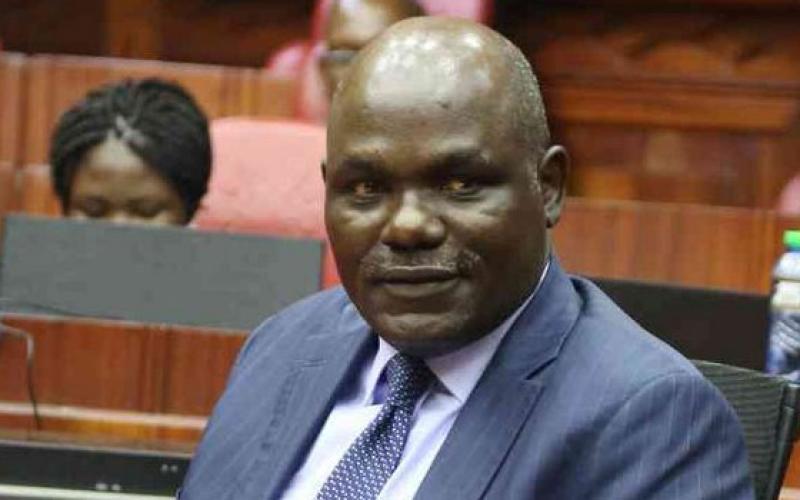
Kenya’s election this year amounts to nothing less than a coup by the incumbent, Uhuru Kenyatta. Every effort was made to infiltrate and control the electoral body. The heavy security preparations and the deluge of peace messages suggest that the outcome was already predetermined and the people’s resistance anticipated.

Rwanda’s sole hero Paul Kagame “won” the 4 August election by 99%. Emboldened by his Western benefactors and cheerleaders, Kagame rules with reckless intransigence and impunity. He has conveniently forgotten that the civil wars of 1959 and 1990s were about the exclusion of whole ethnic groups from state power. The dream of freedom and peace remains distant for Rwandans.
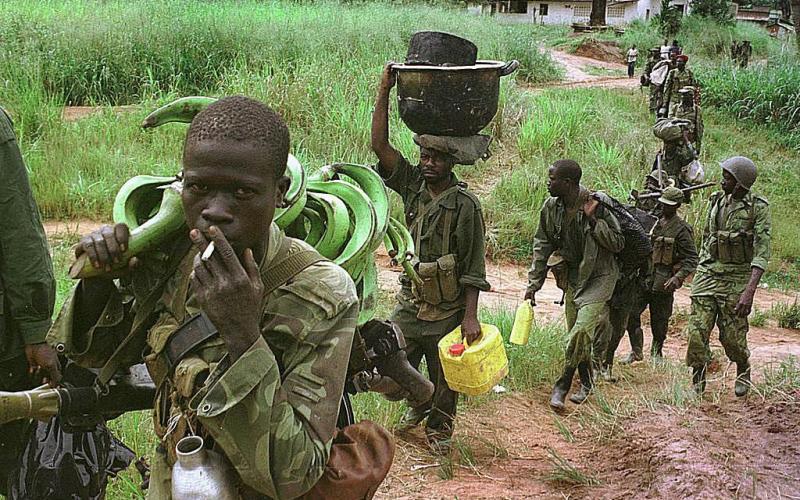
“August 2 is the anniversary of the beginning of the Second Congo War, so we commemorate it to remind Congolese communities at home and abroad that since that date, millions of Congolese have been killed, raped, kidnapped, and enslaved for our natural resources. We need to remember them and work to bring an end to the killing."

Global resource extraction interests in collaboration with corrupt local elites are providing incentives for a genocide against Indigenous people in the Democratic Republic of the Congo, and a virtual media blackout allows this travesty to continue unchecked.

As he launched the African Regional Centre of the New Development Bank (NDB) in Johannesburg on Thursday, nearly 18 months behind schedule, South African President Jacob Zuma must have had mixed feelings. Strife-riven Brazil, Russia, India and China are more risky allies than Zuma reckoned when in 2010 he accepted Beijing’s invitation to join the club.
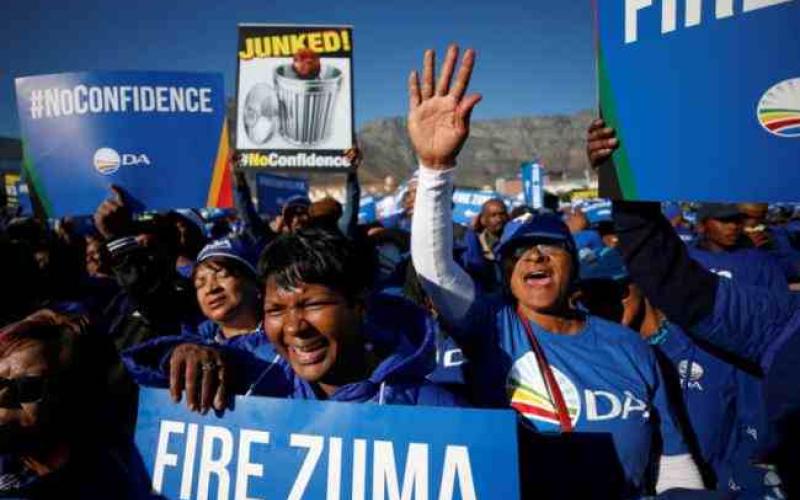
Indicative was the debate preceding the vote: not a single speaker spoke in defense of President Zuma, who after all is also the party leader. The opposition was eager to explain that the motion was not about removing the ANC from government, but Zuma from presidency. In contrast, those taking the floor for the ANC, appealed to members to protect the government from regime change and not abandon the party loyalty.

When Helena Terra heard that ProSavana, a giant agribusiness project proposed for northern Mozambique would be presented for “judgment” at the Permanent People´s Tribunal in South Africa, she was convinced that their struggle against the project was gaining momentum.
Dhiru Soni

The urgent need for South Africa’s rehabilitation may only begin with a united voice of the people that speaks and acts on behalf of all who live in the country and gives the highest priority to the elimination of a political regime that has gone rogue. As former minister of finance, Pravin Gordhan, said, “We did during apartheid, we can do it again”.

A confidential audit report from Norwegian government-owned alcoholic beverage retailer Vinmonopolet has uncovered harassment, unionization prohibitions and salaries below the minimum wage at several of its wine producers in South Africa.
Job Shipululo Amupanda
 Bankie was a Pan-Africanist in his own class. He would not want Pan-Africanists to fall into sentimentalism about his passing on to the Ancestral world. Rather he would want us to dedicate our work to the liberation of the African people, particularly working towards black people’s knowledge of self.
Bankie was a Pan-Africanist in his own class. He would not want Pan-Africanists to fall into sentimentalism about his passing on to the Ancestral world. Rather he would want us to dedicate our work to the liberation of the African people, particularly working towards black people’s knowledge of self.
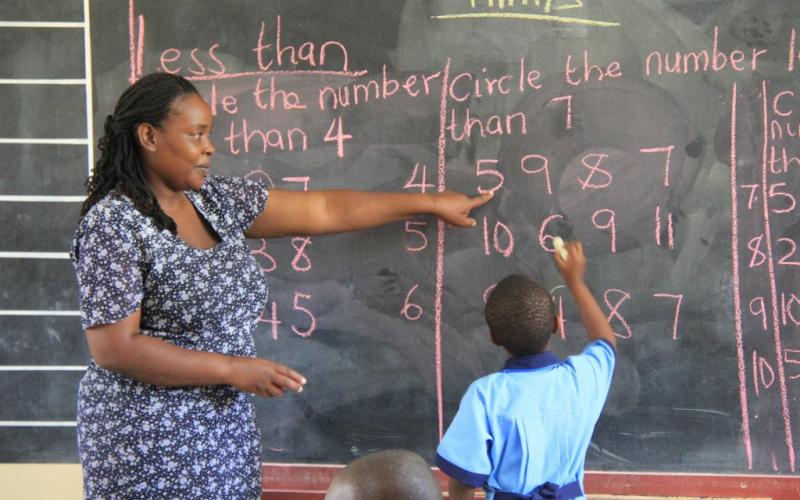 Tanzania’s famous founding president Julius Nyerere was a teacher. But despite the government’s commitment to education in its development agenda, many young people shun the teaching profession. Salaries are low, classes big and teaching has little prestige among the professions.
Tanzania’s famous founding president Julius Nyerere was a teacher. But despite the government’s commitment to education in its development agenda, many young people shun the teaching profession. Salaries are low, classes big and teaching has little prestige among the professions.

Like many young people across Africa, Ugandan youth face the challenge of acquiring appropriate skills and deploying them in achieving their dreams. An essay competition at Kampala International University gave students the opportunity to reflect on this issue and to explore solutions to youth unemployment.
Announcements
Africa-Europe relations: Towards a different future for the two neighbours?
Call for papers for a special issue of Pambazuka News
The Editors
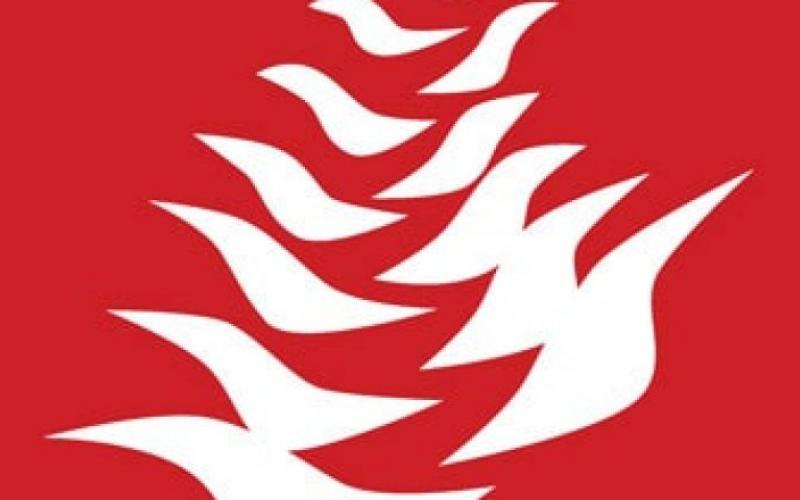 As African and European leaders plan to meet in Abidjan, Cote d’Ivoire, late November 2017 to assess the status of the Africa-Europe partnership, Pambazuka News is calling for a broad range of papers analysing, from various perspectives, relations between Africa and Europe and how they might evolve in the coming decades.
As African and European leaders plan to meet in Abidjan, Cote d’Ivoire, late November 2017 to assess the status of the Africa-Europe partnership, Pambazuka News is calling for a broad range of papers analysing, from various perspectives, relations between Africa and Europe and how they might evolve in the coming decades.
Pambazuka Android App is now on Google Play Store
 As a way to reach more people and to make your experience with Pambazuka News better, we have developed an android app as another tool to create a better reading experience with mobile devices. The app will have periodic updates to cater for changing readers' requirements and experiences.
As a way to reach more people and to make your experience with Pambazuka News better, we have developed an android app as another tool to create a better reading experience with mobile devices. The app will have periodic updates to cater for changing readers' requirements and experiences.App download Link
DONATE AND SUPPORT PAMBAZUKA!
Thank you for your support. Click here to donate.
Henry Makori and Tidiane Kasse - Editors, Pambazuka News
Yves Niyiragira - Executive Director, Fahamu
Websites: Fahamu.org, Pambazuka.org
- Log in to post comments
- 1668 reads
Author
Editor

































